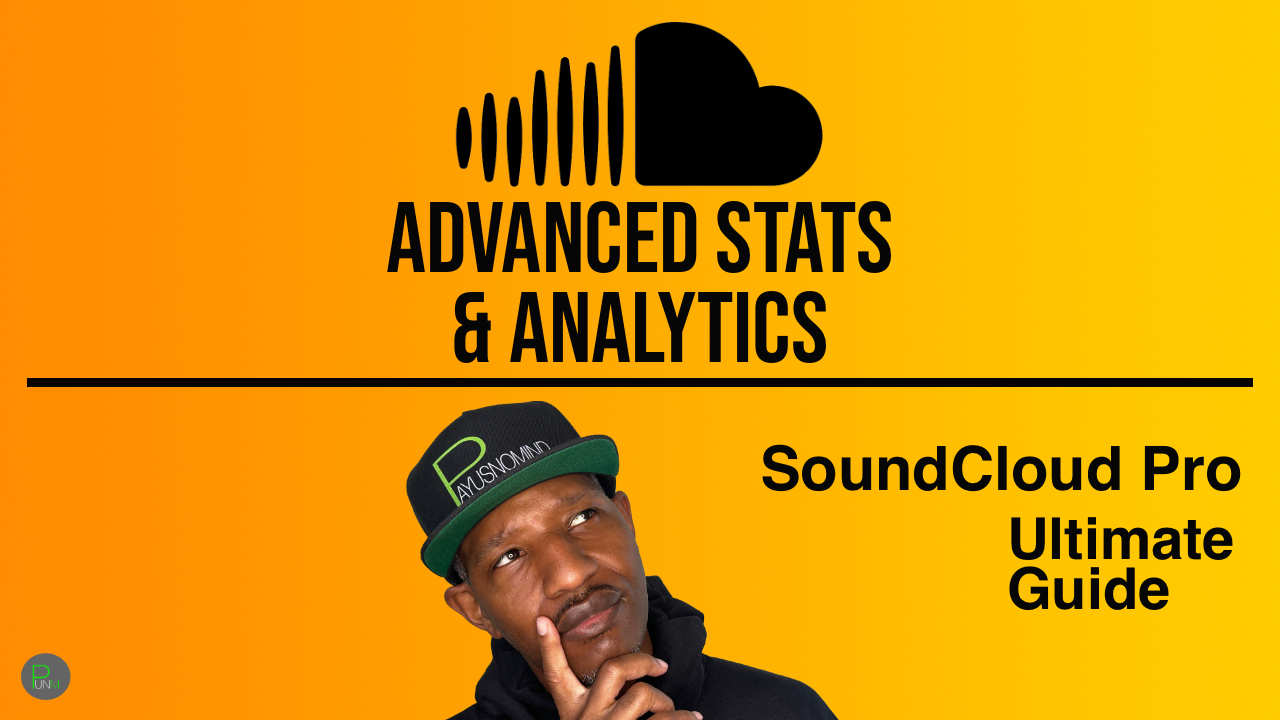SoundCloud Pro Analytics: The Only Streaming Dashboard That Actually Helps You Market Your Music
By Payusnomind · Nov 7, 2025
Free

Most streaming platforms give artists a polite summary of their performance: total streams, top countries, top playlists. It’s nice to look at, but not useful for decision-making.
SoundCloud’s analytics are different. They show who is listening, where they’re from, how they found you, and what they do after hearing your music.
For artists who treat streaming as more than a vanity metric, this level of transparency changes everything.
The Top Listeners Metric
At the core of SoundCloud’s analytics is the Top Listeners section.
It doesn’t just show how many times your music was played—it shows who played it. You’ll see usernames, linked profiles, and exact play counts per listener.
That means you can:
- Identify your most consistent supporters
- Visit their profiles and see what other artists they stream
- Engage directly through comments or messages
This is information no other DSP will share because it gives you too much power. Spotify, Apple, and Amazon all wall off that data to keep you dependent on their ecosystem. SoundCloud gives it to you.
Fans: Identifying True Engagement
Beyond Top Listeners, SoundCloud has a Fans feature that tracks your most engaged users across multiple metrics: streams, likes, reposts, and comments.
It calculates total engagement, ranks your most active supporters, and lets you contact them directly through the platform.
This turns SoundCloud into a miniature CRM for artists. You can literally DM your top fans, thank them for their support, or share early access to new music.
It’s fanbase development built into your analytics.
Segmentation by Engagement Type
SoundCloud doesn’t just stop at who listened—it separates your audience by how they interact.
You can view:
- Top Listeners by Plays – Shows frequency of listens.
- Top Listeners by Likes – Reveals who consistently enjoys your tracks.
- Top Listeners by Comments – Identifies users who engage in conversation.
- Top Listeners by Reposts – Highlights your grassroots promoters.
This lets you tailor your approach to different fan types. The people who comment are ideal for direct contact; the ones who repost are natural allies for promotion.
Geographic Insights
Every DSP shows you where listeners are from, but SoundCloud adds depth. You can view Top Cities and Countries by the same engagement filters—plays, likes, comments, and reposts.
That means you can identify where people are not only listening but actively engaging.
If you notice a spike in streams from Atlanta with high repost activity, that’s not just attention—it’s traction.
Understanding that distinction helps you plan local campaigns, collaborations, or show dates in places where interest is real.
Streaming Sources
SoundCloud also shows you where your traffic comes from—something most platforms hide.
You’ll see which websites, blogs, or apps send you streams, whether it’s:
- SoundCloud’s own algorithmic recommendations
- Social media shares
- Embedded players on external sites
- DJ software like Serato
- Internet radio stations
Knowing which sources drive plays allows you to make smarter marketing decisions. You’ll know if your Twitter engagement translates to actual streams, or if a blog placement is delivering anything measurable.
Smoke vs. Fire
The difference between discovery and demand shows up clearly in SoundCloud’s analytics.
A playlist placement or repost spike might generate temporary traffic, but if those listeners don’t return or engage, that’s just smoke.
When you see repeat listens, high engagement, and activity from the same users, that’s fire.
Understanding the difference prevents artists from misreading short-term exposure as long-term growth.
Turning Analytics into Strategy
SoundCloud’s analytics make it possible to build data-driven release and marketing strategies without outside tools.
You can:
- Identify which songs generate the most fan engagement
- Track what types of posts or campaigns drive streams
- Target cities and fans for direct outreach
- Reward top supporters to increase retention
For independent artists, that’s real power. You’re not guessing anymore—you’re responding to evidence.
Conclusion
SoundCloud’s analytics don’t just summarize your performance—they explain it.
By showing who your fans are, how they interact, and where they come from, the platform gives you something no other DSP offers: clarity.
For artists who want to build relationships instead of chasing numbers, this is the most valuable dashboard in the industry.
Next in the SoundCloud Pro Guide: [Partner Perks and Professional Benefits →]
Follow Up